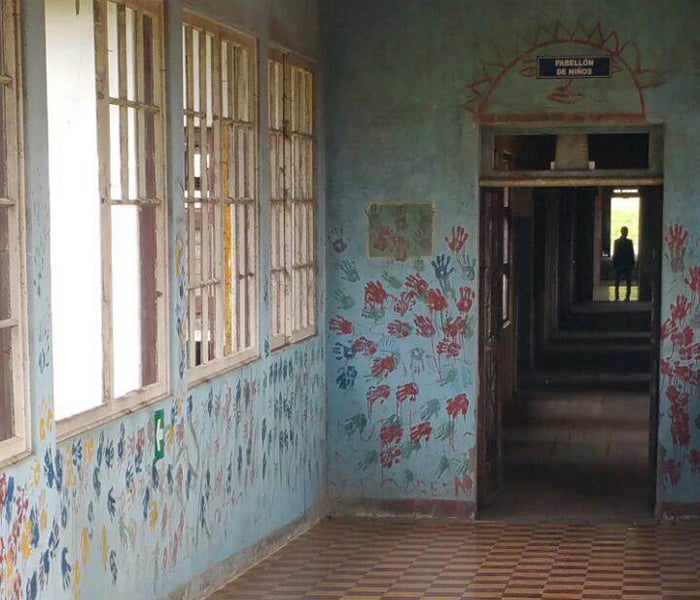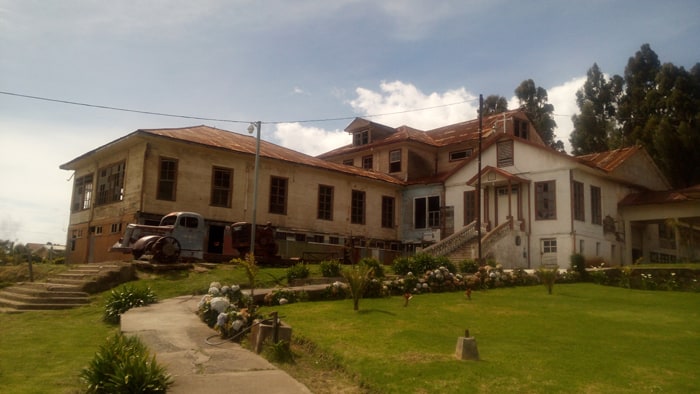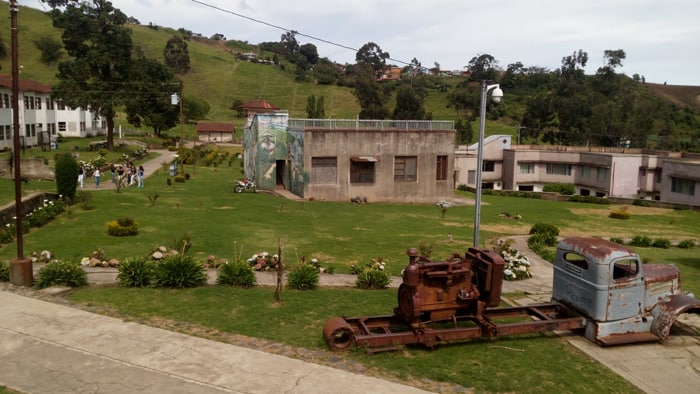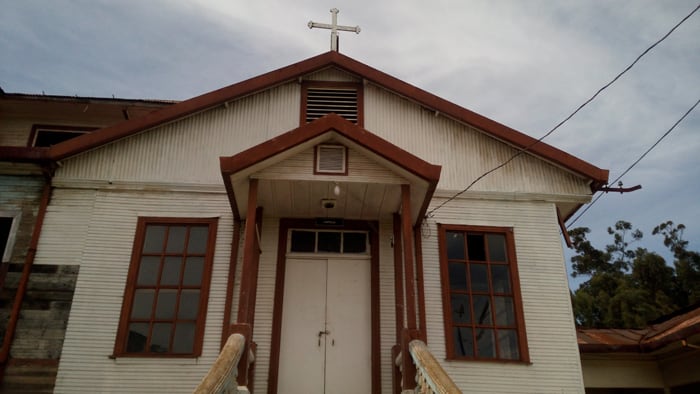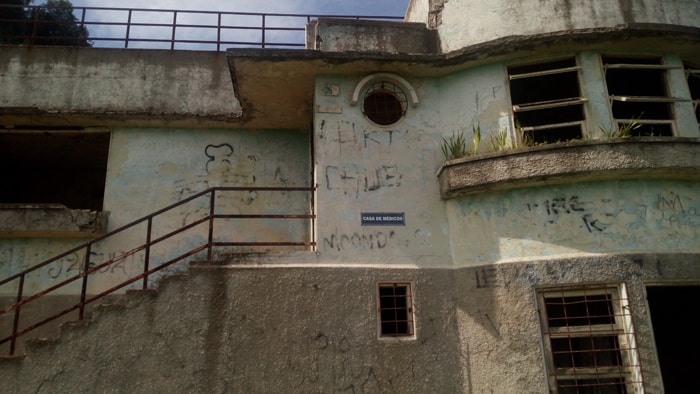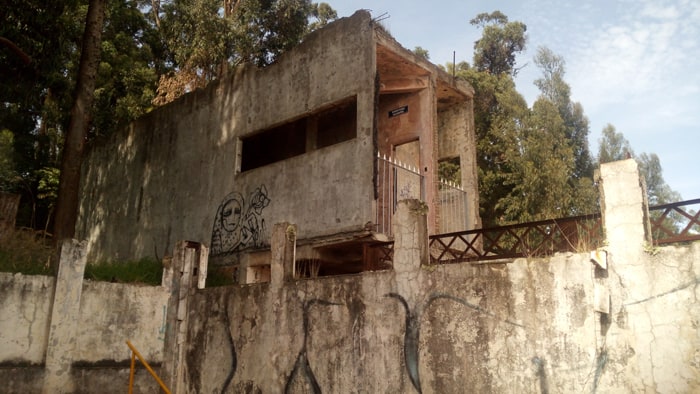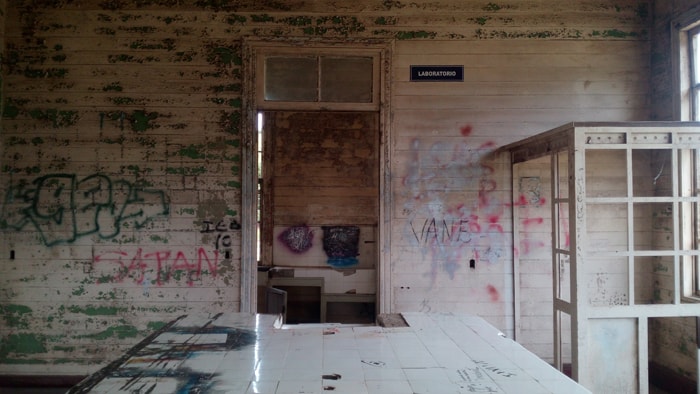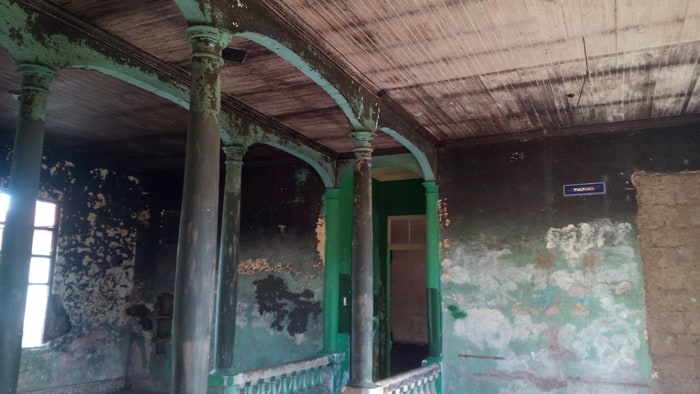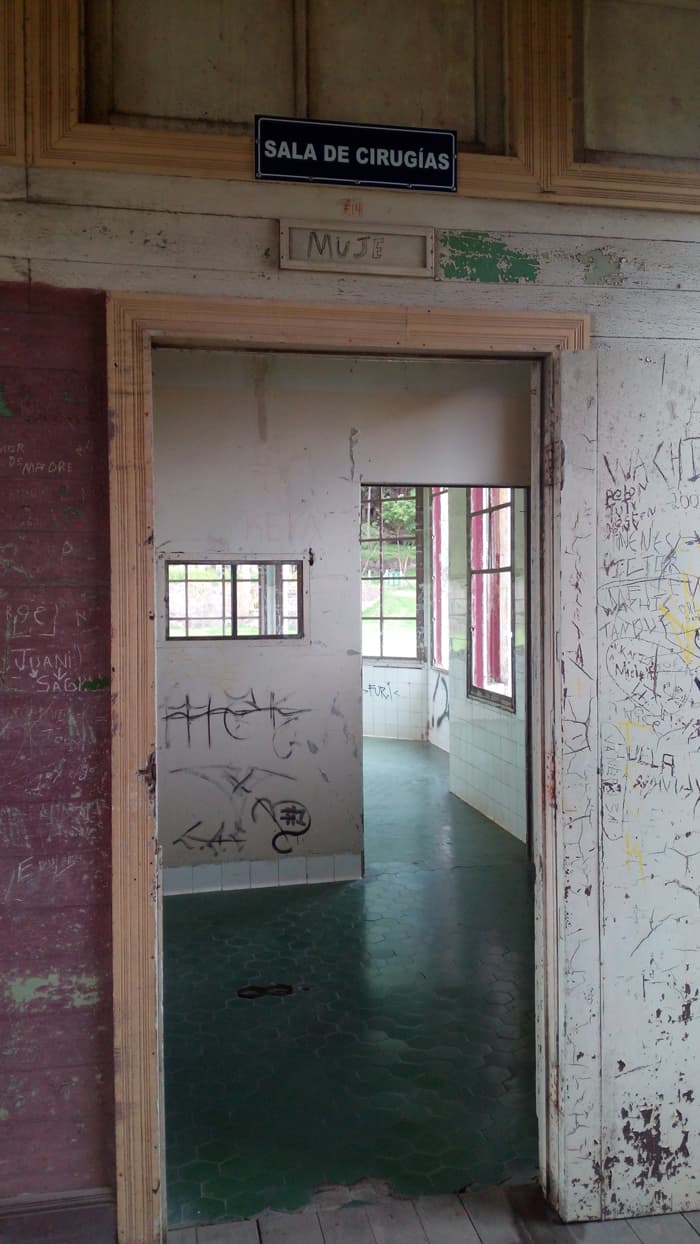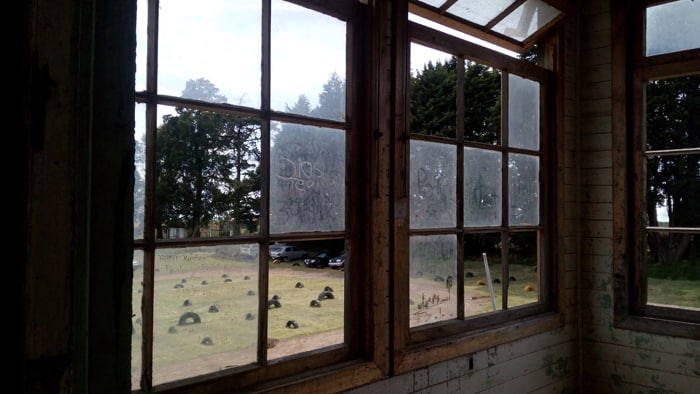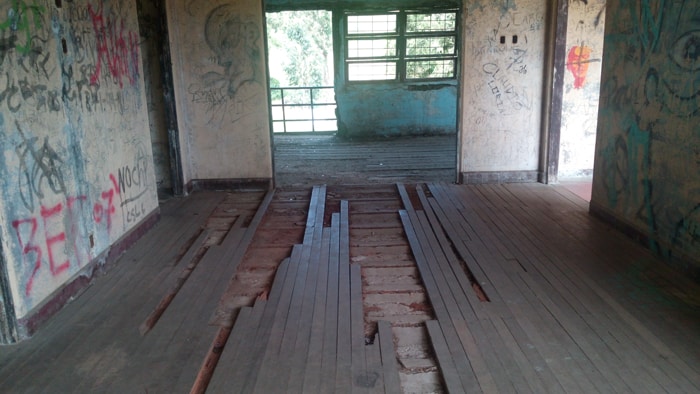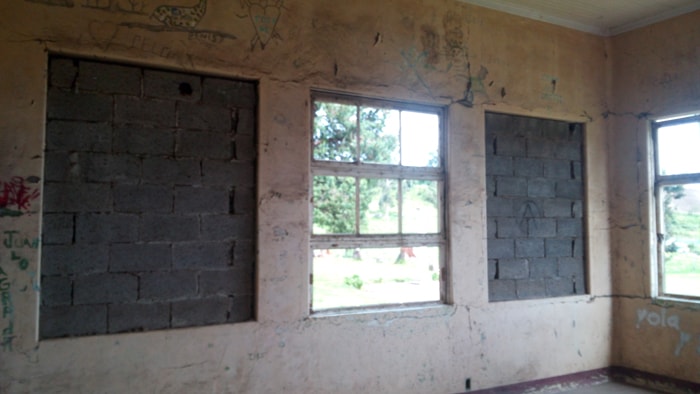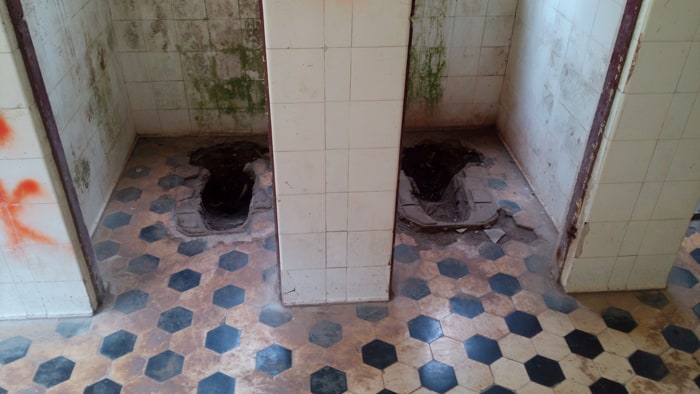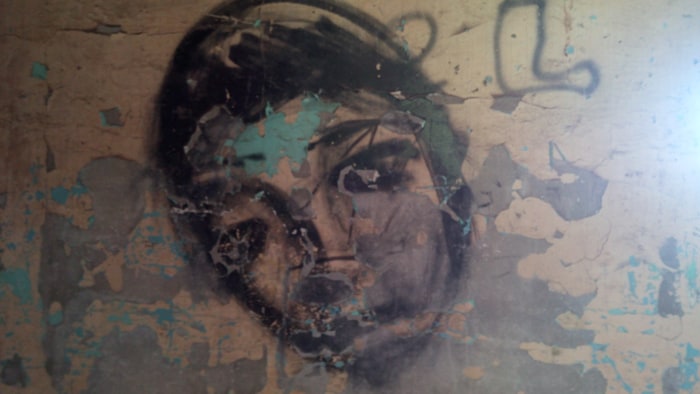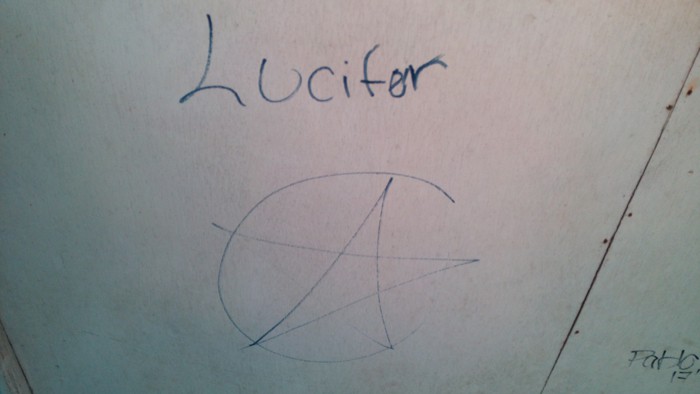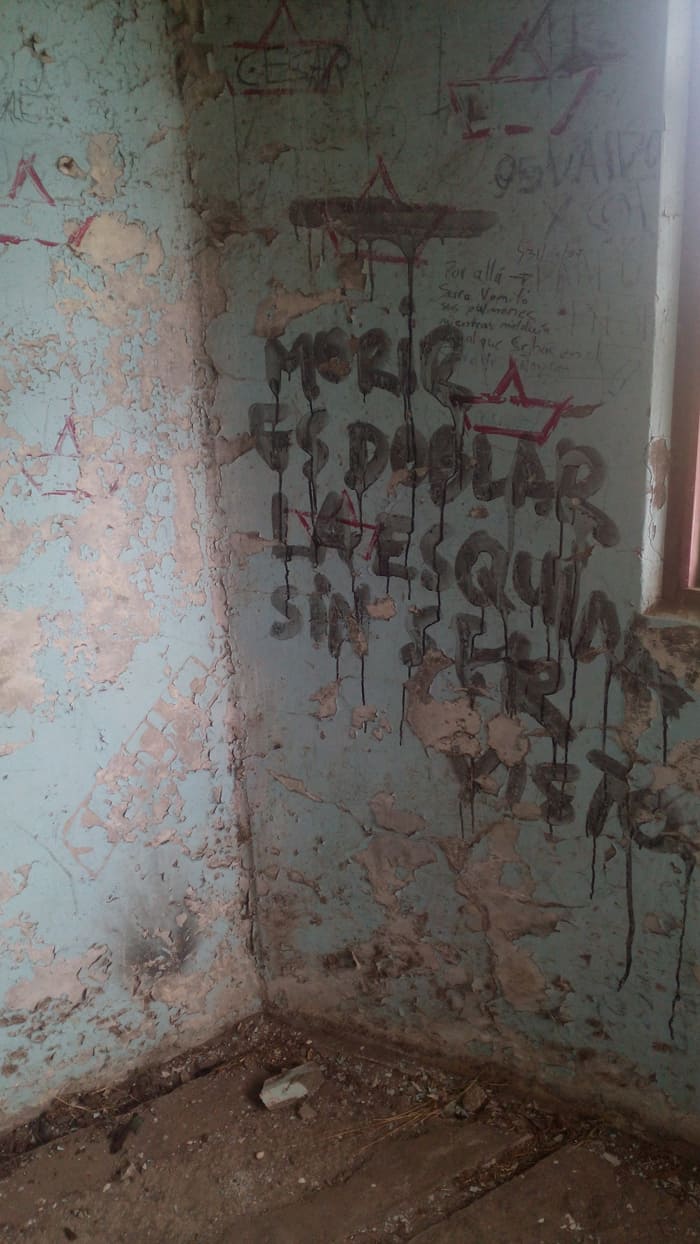PRUSIA, Cartago — On the way home from visiting Sanatorio Durán, the abandoned old hospital said to be the most haunted place in Costa Rica, I received a text from a woman I had just interviewed there:
“We took a picture of a ghost. … I still can’t believe it,” wrote Melissa Navarro, 33, of Escazú. “Do you want it for your article?”
Did I ever!!
It was a photo of a long hallway with colorful handprints on the wall, with a sign at the far end saying “Children’s Pavilion” (which was spooky enough, as all the children housed here had tuberculosis, for which there was a mortality rate close to 50 percent a century ago).
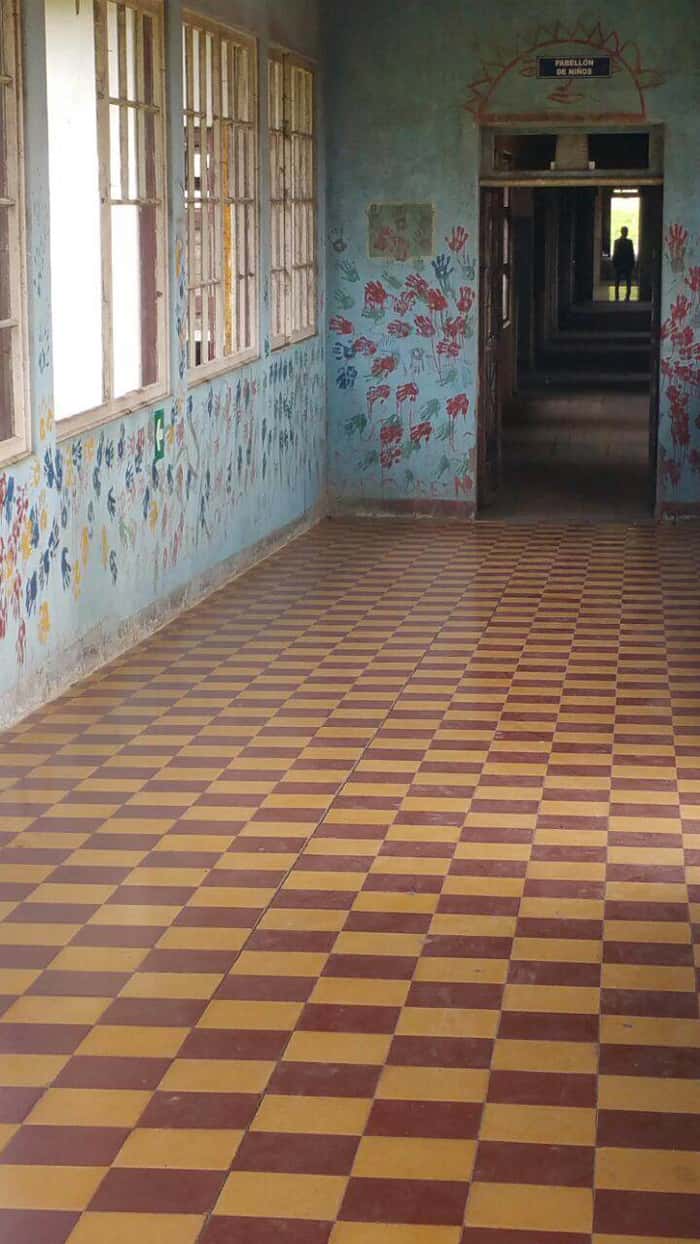
There at the end of the hall was the silhouette of a solitary human figure.
“That person that you see wasn’t there,” Melissa wrote. “We just noticed it now. … It looks like he’s wearing a lab coat. While we were inside we didn’t run into anyone. We have another photo of the hallway with nobody.”
We’ll return to this photo in a bit with some expert analysis, but first, a little background. The Durán Sanatorium was founded in 1918 by Dr. Carlos Durán Cartín, an eminent physician who briefly served as president of Costa Rica (1889-90). Durán’s own daughter had tuberculosis, for which there was no known treatment in Central America at the time.
Located along the road to Irazú Volcano, 7 kilometers north of the city of Cartago, the sprawling facility had space for 300 patients. It was believed that the altitude, temperature and humidity were ideal for the treatment of this highly contagious disease, also known as consumption, or the white plague.
With medical advances that identified effective treatments for TB, prolonged hospitalization of patients at this remote locale was no longer necessary by the 1950s, and the sanatorium closed in 1963. It fell into a state of decay, with chipped paint, broken windows, rotten floorboards and graffiti everywhere, yet this only added to its appeal as a tourist destination.
Even more intriguing, it developed a reputation for being haunted. Even when it was still open, patients reported seeing a phantom monk who visited in the night to cure the sick. Since then, there have been reports of apparitions of both a monk and a long-dead little girl in the hallways, stairwells and rooms.
During my visit, I found the entire complex extremely creepy, with the eerie graffiti, glassless windows, creaky floorboards, dark stairwells and baffling layout. In places it’s like a labyrinth, one room leading to another without discernible pattern, so that it’s easy to get disoriented and lose track of how to get out.
It didn’t help that among the other visitors there were young people scaring each other and girls screaming in terror.
The blue signs scattered throughout can also give you goosebumps: “MORGUE,” “OPERATING ROOM,” “ISOLATION.”
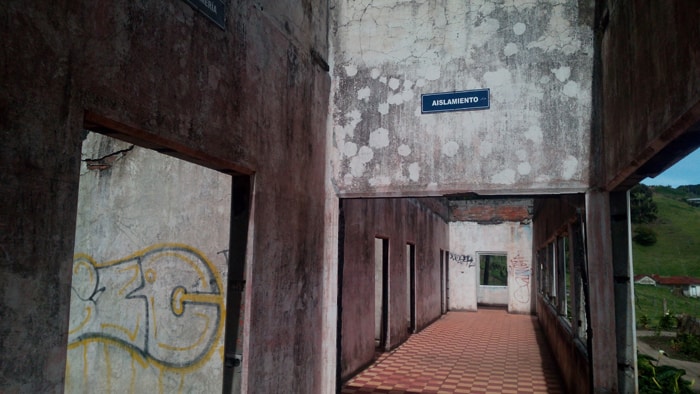
“They say there are three ghosts; they say they often appear in the windows,” said Melissa when I first introduced myself to her group. “There’s a monk, he’s spotted a lot in that hall over there, walking from one building to another. At night you can see him going by in the windows.
“And in the chapel also, there’s always a ghost. People take pictures here, and sometimes you can see it in the window,” she said.
Melissa told me about a “Ghost Hunters” video from the Discovery Channel where you can see a picture of a ghostly little girl sitting on some stairs.
“Do you think this is real?” I asked.
“I don’t know,” she said in a small voice. “But to tell the truth, I wouldn’t want to come here at night. I saw the ‘Ghost Hunters’ documentary, and it really scared me. You can see the little girl sitting there with a long dress.”
Later I looked up this show on Youtube, divided into Part I and Part II, each about 11 minutes long. I thought the investigators had more imagination than evidence, but if you start watching at minute 8:40 of the second part, you’ll see something that can be said to resemble a little girl sitting on the stairs.
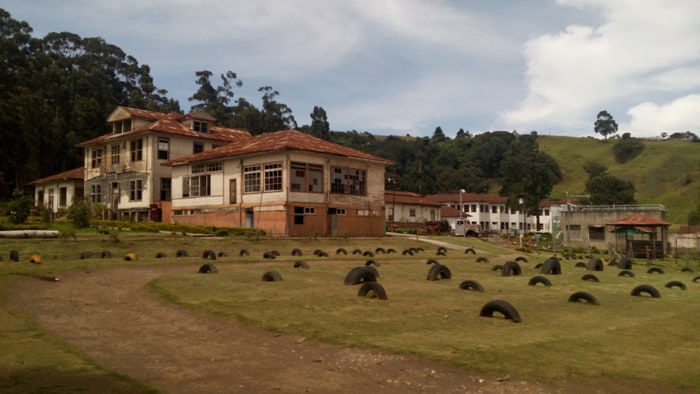
But back to that ghostly picture snapped by my new friends. I took a long look at the figure in the background, blowing it up in Photoshop until it was highly pixelated yet more distinct.
It began to look familiar.
I wrote back to Melissa: “Are you sure that isn’t me???”
She said, “I don’t know, ha ha. Did you see us in there? She [her friend Kathya, the photographer] says she didn’t take anyone’s picture.”
Yet in fact I had seen her group in the building with the handprints on the walls, though I hadn’t spoken to them yet and we went in separate directions.
As much as I wanted to believe in an otherworldly visitation, the “ghost” looked a lot like me — bald head, thin body, wearing a black shirt and blue jeans, looking to my left. And of course I was alone and creeping around quietly.
Do you believe? Far be it from me to say this wasn’t a visitation from beyond the grave.
Who ya gonna call?!
As you ponder that, take a look at some of our photos, and you’ll see why even if this place isn’t haunted, it should be.
IF YOU GO
Getting there: Don’t trust the “shortcut” suggested by the Waze app, which will lead you up a steep, narrow road. From San José, take Highway 2 to Cartago and then Highway 219 east, following the signs to Irazú Volcano. The highway is in great condition and the views are stunning. Not long after the big white statue of Jesus on the right, look for a sign pointing left toward “PRUSIA.” The sanatorium is 500 meters down this road. Buses headed to Irazú can also drop you off here.
Hours: Daily, 8 a.m. to 4 p.m.

